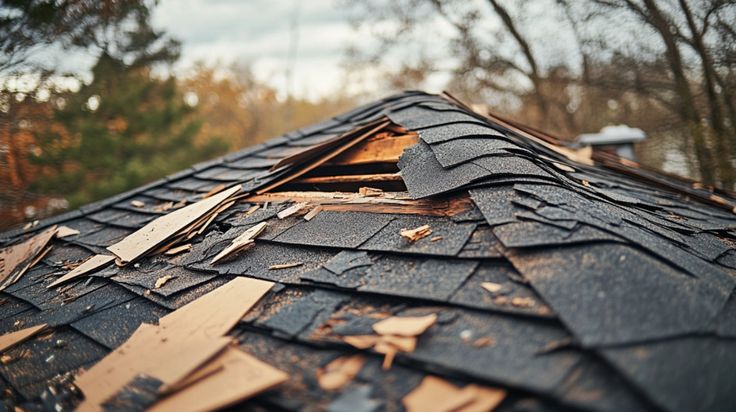
Why Are Property Inspections Crucial Before Making a Purchase?
Introduction
Buying a property is one of the most significant financial investments you will ever make. Whether you’re purchasing a home, commercial property, or investment property, you want to ensure that the property is in good condition and worth the asking price. One of the best ways to protect yourself in this process is by arranging a thorough property inspection.
Property inspections are critical because they allow buyers to assess the condition of the property and identify any hidden problems that may not be immediately apparent. This step is vital for ensuring you are making a sound investment and that the property will not require expensive repairs in the near future.

In this blog, we will discuss why property inspections are so important and how they help safeguard your investment.
What is a Property Inspection?
A property inspection is a professional evaluation of a property’s condition conducted by a licensed inspector. The purpose of the inspection is to identify any major or minor issues with the property, from structural damage to plumbing problems.
The inspector will examine various elements of the property, including the foundation, roof, walls, electrical systems, plumbing, HVAC (heating, ventilation, and air conditioning), and more. The goal is to uncover potential issues before you finalize the purchase, allowing you to make an informed decision.
Why Are Property Inspections Important?
Uncover Hidden Problems
One of the primary reasons property inspections are important is that they help uncover hidden problems. A visual inspection of the property may reveal only some things. For example, you may not be able to see water damage behind walls or mould growing under the floors. An inspection will help identify issues that might otherwise go unnoticed, saving you from costly repairs later on.
Avoid Unexpected Expenses
Property inspections help identify issues that could result in substantial costs down the road. For example, suppose the inspector identifies a faulty HVAC system or a roof that needs replacing. In that case, you can factor these costs into your negotiations or walk away from the deal if the issues are too severe. This allows you to make an informed decision about the financial feasibility of purchasing the property.
Ensure Safety
Property inspections are essential for identifying safety hazards, such as faulty wiring, mould, or fire risks. Suppose an inspector finds issues that pose a danger to the occupants, such as an outdated electrical system or structural weaknesses. In that case, this gives you an opportunity to negotiate repairs or reconsider the purchase.
Negotiation Leverage
A property inspection report gives buyers leverage in negotiations. If the inspector uncovers issues, you can use this information to negotiate a lower purchase price or request that the seller make repairs before closing. If you do not have an inspection, you may end up overpaying for a property that requires costly repairs.
Peace of Mind
One of the most valuable benefits of a property inspection is peace of mind. Knowing that the property has been thoroughly checked by a professional means that you can move forward with the purchase confidently without worrying about hidden issues.
Common Issues Found During Property Inspections

Property inspections can uncover a wide variety of issues, ranging from minor concerns to major structural problems. Some of the most common issues found during property inspections include:
Roof Damage
The roof is one of a property’s most critical components, and it’s often one of the first things inspected. Issues like missing shingles, leaks, or worn-out roofing materials can lead to significant damage if not addressed.
Plumbing Issues
Plumbing problems, such as leaks or outdated pipes, can be costly to repair and may cause water damage or mould growth. An inspection can identify potential issues in advance.
Electrical Problems
Outdated or faulty electrical wiring can be a fire hazard. An inspector will check the electrical systems to ensure they are safe and up to code.
Structural Damage
Structural issues, such as foundation cracks or sagging floors, can be expensive and difficult to repair. Identifying these issues early can save you a lot of money.
Pest Infestations
Termites, rodents, and other pests can cause significant damage to a property’s structure. Property inspections often include pest inspections to ensure that the property is free from infestations.
Choosing the Right Property Inspector
When hiring a property inspector, it’s essential to choose someone who is licensed and experienced. Look for an inspector with certifications from reputable organizations, such as the American Society of Home Inspectors (ASHI) or the National Association of Home Inspectors (NAHI). You should also read reviews and ask for recommendations to ensure that the inspector is trustworthy and thorough.
A good property inspector will take the time to explain their findings and provide a detailed inspection report. This report should include descriptions of the issues found, photos, and recommendations for repairs.
Conclusion
Property inspections are an essential step in the home-buying or investment process. They help uncover hidden problems, prevent unexpected expenses, ensure safety, and provide negotiation leverage. By investing in a property inspection, you are protecting your financial future and ensuring that the property you purchase is a sound investment.
Before making an offer on a property, always arrange for a professional inspection. It’s a small investment that can prevent costly mistakes and provide you with peace of mind that your property is in good condition.



